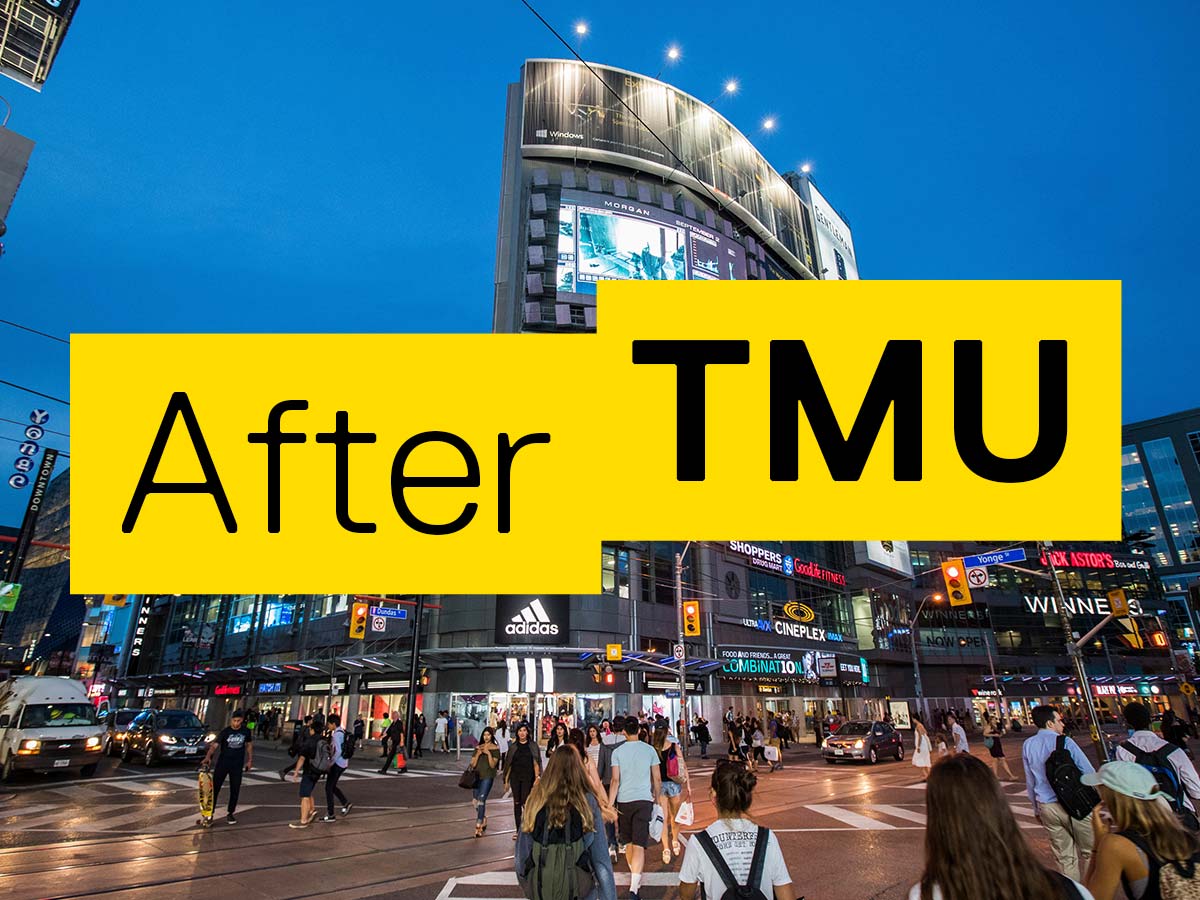After TMU — Kimberly Halkett

1. How did your degree influence your career choice?
My grandfather, Bill Halkett, was a newspaper photojournalist. He inspired my career choice even before setting foot on Toronto Metropolitan University's campus (formerly Ryerson University). Still, I wouldn’t have my current position, as White House Correspondent for Al Jazeera, without my degree. My TMU professors actively worked in the industry as some of Canada’s most well-known and respected broadcast journalists. The skills and talents they shared with me lifted my professional work to the level I aspired to, but couldn’t achieve without their guidance. So, my TMU degree didn’t influence my CHOICE of career; it helped determine the SUCCESS of my career.
2. What are some skills you developed through university?
One skill stands out that I use almost every day as a correspondent. It’s a technique the late Stuart McLean taught me in his Radio Documentary course, which is the ability to tell a great story by connecting with your audience through human emotion. It’s emotion, not facts that make an ordinary television news report exceptional. Stuart McLean’s instruction changed how I approach almost every story I cover. He shaped my career with his stories and wisdom. I miss him.
3. What do you wish you could tell your university self?
Walk your own walk and don’t let others define you. I used to spend way too much time worrying about what others thought about me, my work and how it would be received. I kept trying to do what I thought others expected, instead of following my instincts. My career took off when I listened to my inner voice and took a path less followed. It took some courage, but it’s worth it.
4. How did your experience at TMU help you find your first position after graduation?
I grew up on Vancouver Island. Adjusting to the fast pace of Toronto was an overwhelming experience. Just taking the subway was a big deal, so the idea of finding work while still based in Toronto was daunting. TMU helped me close that life experience gap and made finding a prestigious entry-level journalism position possible. There’s no question, I would not have gotten my first big job as an editorial assistant in one of Canada’s top newsrooms without TMU on my CV. CBC-TV knew the product it would get from a TMU trained journalist. TMU gave me exposure to successful, actively working producers, reporters and news anchors. Those contacts catapulted me into the industry where I remain, now covering Donald Trump’s White House – arguably one of the most extraordinary presidencies in modern history.
5. In your experience, what are some attributes of individuals who are most successful in your field?
Not subscribing to “groupthink” is often a difficult thing to do but it’s what successful journalists, in my view, practice every day. As a result, I’ve tried to focus my work at Al Jazeera around one key aspect of our company mandate – to give a voice to the voiceless. Challenging traditional authority and power, while giving a platform to those without one, is something I strive to do every day. I believe successful journalists take advantage of our ability to shine a light on injustice, regardless of whether it brings us personal fame or fortune.
6. If you could start all over again, would you change your career path in any way? Why?
Not in a million years. It’s allowed me to have a “front seat” and “backstage pass” to some of history’s biggest moments. Most recently, in addition to covering the White House, for months I had the opportunity to cover the historic presidential bid of Hillary Clinton. Like almost everyone, I’ve had my share of professional challenges and setbacks. But, I’ve worked hard for my opportunities – ones I don’t take for granted. TMU provided me with the skills necessary to achieve my goals.